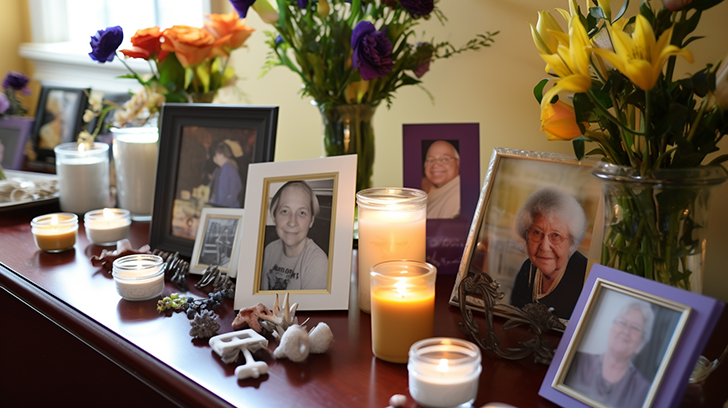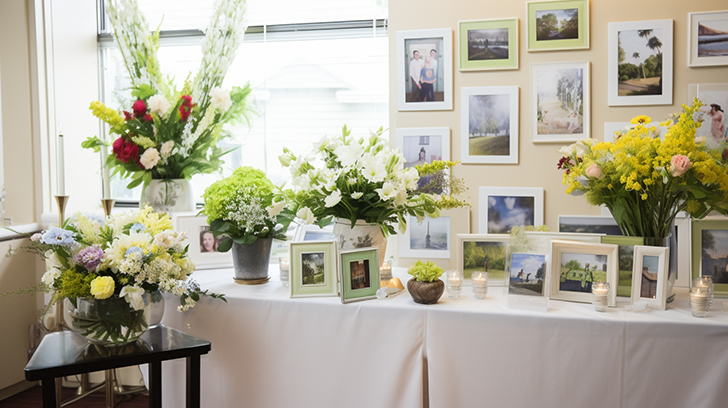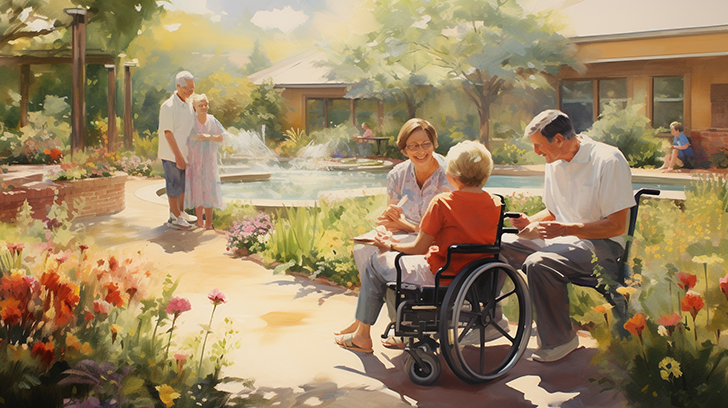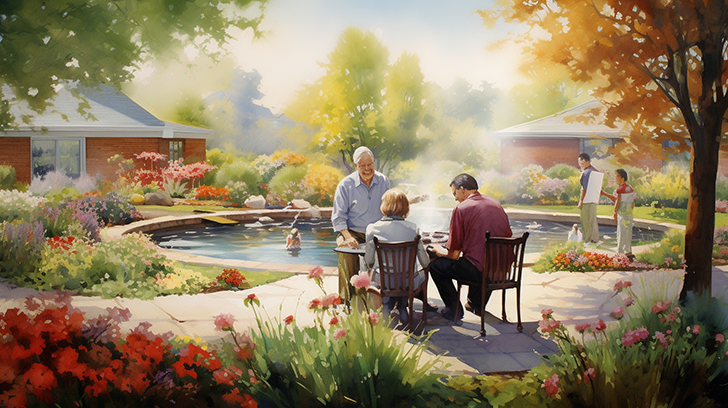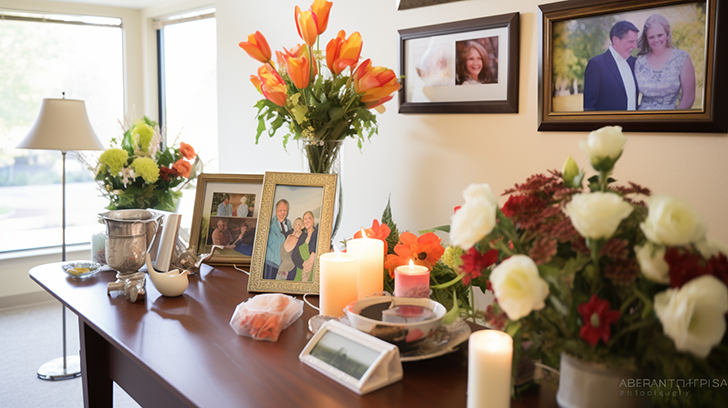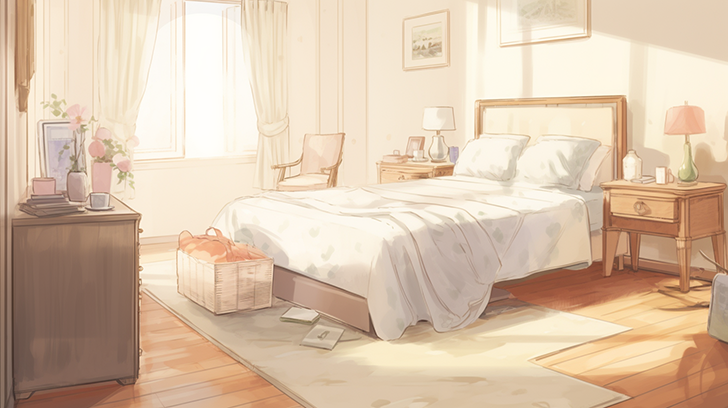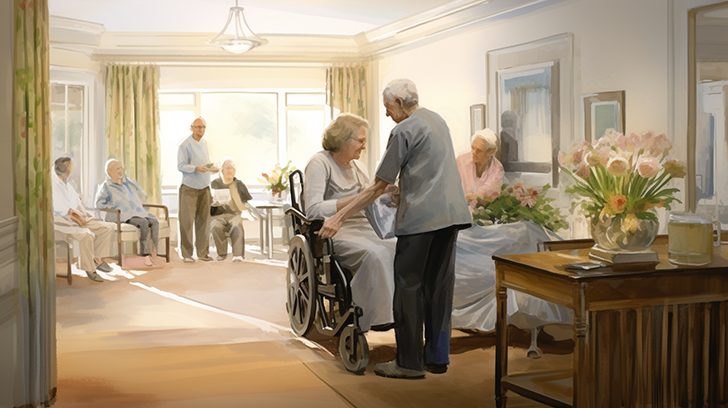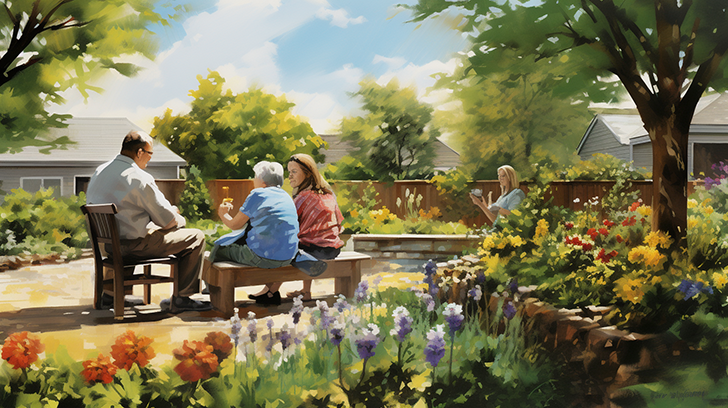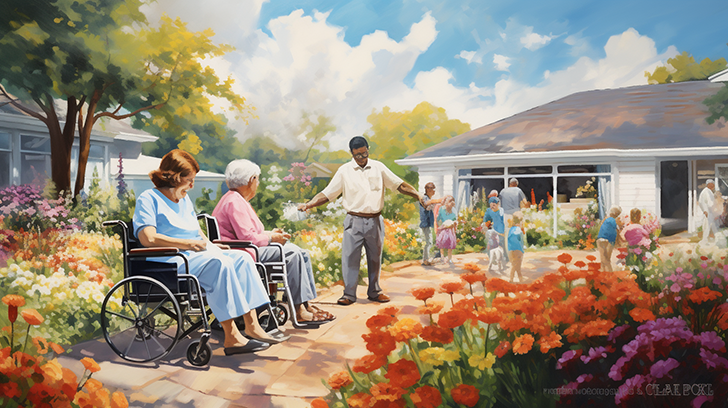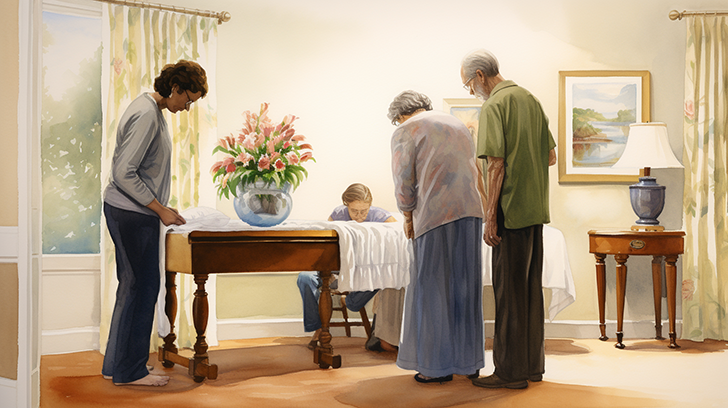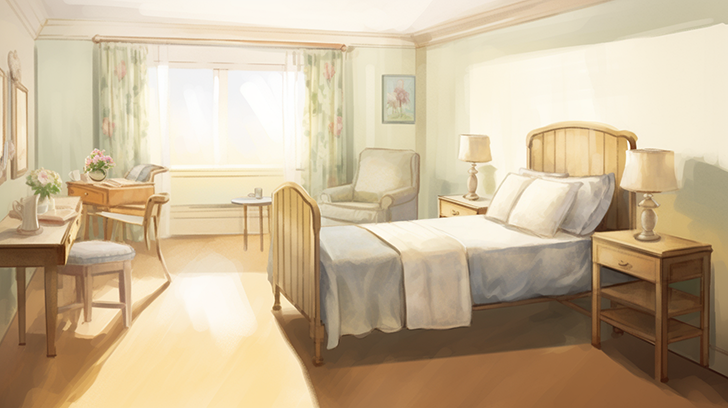- by Tim Thompson
When Someone Dies In A Care Home
It can be a challenging and emotional time when someone passes away while being cared for in a care home, and procedures such as arranging for burial or cremation can exacerbate the turmoil. Knowing the necessary steps to take can help alleviate some of the stress during this difficult period. Understanding the legal responsibilities, such as registering the death within five days, obtaining the medical certificate of cause of death, and comprehending the legal formalities, is crucial to smooth the process after the person has died.
Legal Responsibilities
When someone passes away in a care home, the care home staff are trained to guide you through the legal responsibilities. This process involves registering the death and obtaining the medical certificate of cause of death. Upon a resident’s death, the care home staff will usually get in touch with the next of kin and issue a medical certificate necessary for the death to be registered.
Registering the Death
Registering a death, which includes obtaining a certificate for burial or cremation, is one of the key legal formalities that need to be completed as soon as possible after their death. If your loved one dies in a care home, the doctor will issue a medical certificate of cause of death, which is crucial for the next steps such as arranging a funeral or cremation.
Obtaining the Medical Certificate of Cause of Death
Upon the death of a loved one in a care home, the next of kin or the authorized individual will need to collect the medical certificate of cause of death from the care home staff, allowing the death to be registered. This document, the medical certificate of the cause, is necessary for any funeral arrangements.
Understanding the Legal Formalities
If the death is unexpected or sudden, the coroner may need to determine the cause of death through a post-mortem examination, after which the doctor will usually issue a death certificate. However, if the death was expected because your loved one was spending their last days in the comfort of a care home, the care home staff will know the necessary procedures and can assist with issuing the documents allowing the death to be registered.
Notifying Authorities and Family
When a loved one passes away in a care home, it’s important to notify the relevant authorities and the family to ensure that legal obligations are met and the necessary support is provided during this challenging time.
Informing the Care Home Staff
The first step after the unexpected death of a loved one who spent their last days in the comfort of a care home is to inform the care home staff, so they can start the necessary processes. They are well-trained to guide you through the legal responsibilities and procedures and can offer assistance in obtaining the medical certificate of cause of death and completing the necessary documentation.
Contacting the Authorities
After a death in a care home and getting informed of it, it becomes essential to register the death with the appropriate authorities. This includes getting the death certificate and verifying the death if your loved one passes away in a care home and facilitating any required post-mortem examinations if the cause of death is unexpected and may have to be referred to the coroner. The care home staff can provide guidance on how to deal with your loved one’s body after they pass away, and what process and necessary steps to take, they may also assist in handling your loved one’s possessions.
Notifying Family and Loved Ones
It’s essential to notify the next of kin and other loved ones about the passing of a family member or friend. The care home staff will usually assist in communicating this information and supporting the family in making any necessary arrangements, such as contacting a funeral director and arranging the funeral or cremation.
Arranging for the Funeral
After the time of death of a loved one in a care home, one of the crucial steps, besides handling the loved one’s possessions, is to arrange for the funeral, which may involve deciding on burial or cremation. This involves various legal and emotional responsibilities related to an expected death that need to be addressed during this challenging time.
Certificate of Cause of Death
In order to be able to collect the body of your loved one and proceed with the funeral arrangements, collect your loved one’s medical certificate of the cause of death, as it is an important part of the process. This document, after your loved one dies, is needed for accomplishing the legal formalities and arranging the funeral or cremation. The care home staff or the authorized individual can issue the certificate for burial or cremation after verifying that your loved one has died and certifying the death, allowing it to be registered.
Arranging for the Funeral Service
Arranging for the funeral service involves coordinating with a funeral director or crematorium. The care home staff can provide guidance on the necessary steps and support in making the funeral arrangements after an unexpected death, ensuring that the process is conducted with care and compassion.
Support for the Family
During this difficult time, it’s important to not only provide support for the family of the deceased but also to manage the loved one’s possessions. If the death is sudden, the care home staff can offer assistance in communicating with the family, notifying them about the loss, and providing emotional support to aid them in dealing with their grief.
Emotional Support
Dealing with the loss of a loved one who spent their last days in a care home can be overwhelming. Providing emotional support to the family and loved ones after an unexpected death by the care home staff is vital as they cope during this challenging period.
Providing Support for the Family
Upon the occurrence of a death in a care home, the staff can provide support for the family by offering compassionate assistance in understanding the necessary procedures and guiding them through the funeral or burial arrangement. You can count upon the support which is pivotal in making sure that the family is able to advise on all aspects and feels cared for during this emotional time after the death of their loved one.
Coping with the Loss
Coping with the loss and arranging the handling of the body after they pass away of a loved one can be a difficult journey, especially when one has to arrange visits to the chapel of rest or decide on burial or cremation. It’s fundamentally important for the family to be equipped with all the support the care home staff to offer and the resources they need to grieve and find comfort during this period of mourning after their loved one dies. The care home staff can offer guidance on coping strategies and provide a compassionate presence for the family after the unexpected death of their loved one.
Seeking Professional Help if Needed
If the family is struggling to cope with the loss of a loved one who spent their last days in a care home, it may be necessary to seek professional help. The care home staff can offer recommendations for grief counselling or support groups to help the family members navigate their feelings of loss and find solace during this challenging time after an unexpected death.
Frequently asked questions about death in a care home
What happens when someone dies in a care home?
When a death occurs in a care home, the care home staff will notify you as soon as possible and will help coordinate the collection of the body, which may be kept in the hospital mortuary or chapel of rest facilities. If a GP has seen your loved one in the last 14 days preceding an expected death, a death certificate will be issued by them. If not, after an unexpected death, the coroner or procurator fiscal may have to order a post-mortem examination to determine the cause of death. Please note that a funeral cannot be conducted until the coroner’s inquest has been completed.
What should we expect as family members when a loved one dies in a care home?
When a loved one unexpectedly passes away while being cared for at a care home, the staff will contact the family immediately. They will guide you through the next steps which may include collecting your loved one’s belongings and co-coordinating with a funeral director to collect your loved one after an unexpected death. They will also provide emotional support during this difficult time after the unexpected death of the resident.
How long do we have to collect our loved one who has died in a care home?
Usually, following an unexpected death, a funeral director will arrange a convenient time with the care home to collect your loved one. There is no specific timeframe in which the doctor will usually issue a death certificate, however, it is typically done within a few days after someone dies.
What is the process for death certification when someone dies in a care home?
If someone dies in a care home, their death will need to be certified by a medical practitioner, who should be called to certify the death, usually the GP who has seen your loved one in the last 14 days. The GP will confirm the death and then issue a medical certificate of death unless a post-mortem examination or inquest is needed to determine the cause of the death.
What happens if the GP has not seen my loved one in the last 14 days?
If the GP has not seen your loved one in the last 14 days before they die in a care home, they may need to order a post-mortem examination or an inquest to determine the cause of death.
What are the common procedures to be followed after someone dies in a care home?
After the time of death, when someone passes away in a care home, you’ll need to register the death within five days, and you’ll then get the documents you need for the funeral, including the certificate for burial or cremation. You can also call the Tell Us Once service to report a death to most government organisations in one go.
How is the cause of death determined when someone dies in a care home?
The cause of death when someone dies in a care home, perhaps, spending their last days in the comfort of it, is determined by a medical practitioner, sometimes the procurator fiscal may order an examination or inquest to determine the precise cause. This generally involves a review of medical records and physical examination, which sometimes may happen at a hospital mortuary. If the cause of death is not clear, the GP may order a post-mortem examination or inquest to determine the exact cause.
Where will our loved one’s body be kept once they die in a care home?
Usually, once a person dies in a care home, their body is moved from the comfort of a care home to the funeral director’s premises, called the ‘chapel of rest’, where they are prepared for the funeral.
What administrative tasks need to be done when a loved one passes away in a care home?
When a loved one passes away in a care home, some of the tasks that will need to be taken care of include notifying insurance companies, paying bills, cancelling services and subscriptions, and informing the local authorities. The care home staff will be able to help and will be able to guide you in the correct procedures to follow.
Is there any additional paperwork if our loved one passes away in a care home?
You’ll need to sign paperwork to acknowledge the death when your loved one passes away in a care home. The care home staff will guide you through this process once your loved one has died, which includes being able to collect the body and then you’ll also need to register the death, usually within 5 days in England, Wales and Northern Ireland, or 8 days in Scotland.

